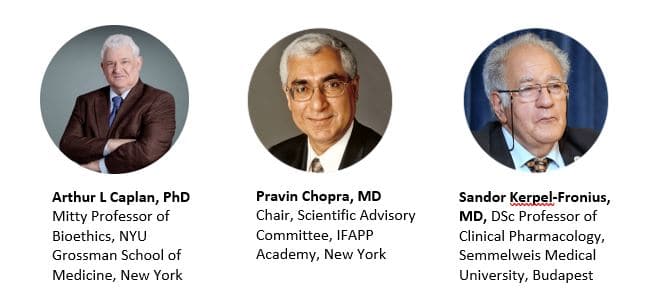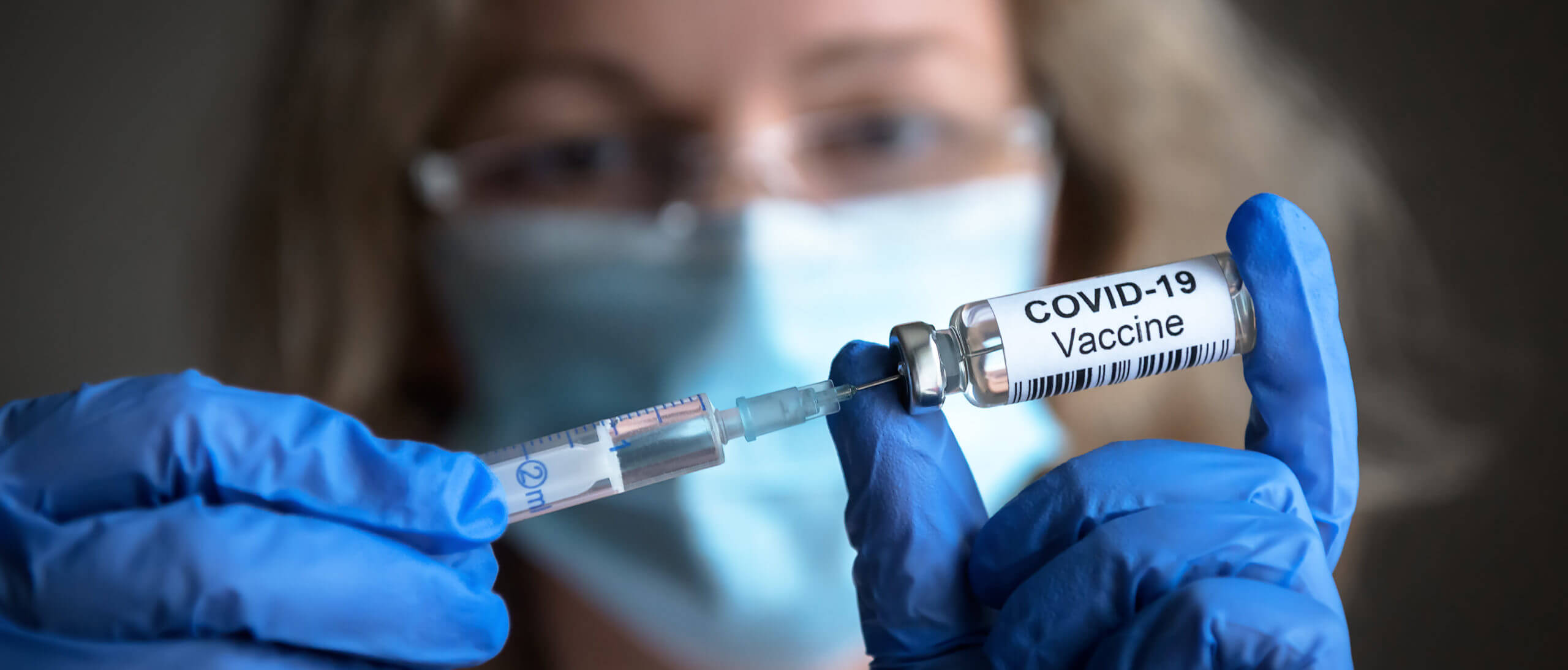Conversations with the Academy series webinar, March 30, 2021

2020 pummeled us with unforeseen and unfathomed circumstances, demanding sweeping changes with traditional mindsets, policies, and perspectives, even as the COVID-19 pandemic took a grievous and burdensome toll on life, healthcare systems, and the global economy.
From the early days, philosophy has expounded on the ethics in relationships between individual virtue, society, and the State. Fast forward to 2021, over a year into the medical and socio-economic upheaval ravaged by the pandemic. We confronted science being pitched versus politics. We witnessed unparalleled collaboration between biopharmaceutical rivals. We grappled with individual rights versus societal interests. We asked ourselves what is just, what is fair, what is legal, and what is right?
Guiding us through this minefield of emerging scenarios, Arthur Caplan, Professor, Division of Medical Ethics, New York University (NYU) School of Medicine, Sandor Kerpel-Fronius, Professor, Clinical Pharmacology, Semmelweis Medical University, Budapest, and Pravin Chopra, Chair, Scientific Advisory Committee, IFAPP Academy, reflected on the contentious bioethical issues in the year that has been….
The panel deliberations focused on the several important ethical, policy, and access issues that have become pressing and thrown into the limelight, contesting traditional thinking and concepts, even as various COVID-19 vaccines are being made available in different nations.
The accelerated development of these vaccines, some deploying novel platforms, receiving Emergency Use Authorization (EUA) in the backdrop of the pandemic, has triggered bioethical concerns around informed consent in emergency settings and for unapproved products. This has also drawn attention to revisiting traditional tenets with human challenge studies, clinical trial design elements, and regulatory oversight of the drug development paradigm. Moreover, patient engagement and advocacy groups are becoming increasingly empowered with seeking information about and pre-approval access to investigational treatments and biopharmaceutical innovation.
Who ought to receive vaccines first when they are still scarce and with usage restrictions? What are the overriding scientific, ethical, and political factors influencing national guidance on the use of vaccines, even without completed phase III evaluation of efficacy and safety, when vaccine supply is inadequate? Should a single-dose or even a delayed booster injection immunization strategy be deployed for compensating limited vaccine stores? How and when do nations decide whether to share vaccines with other nations? What is the optimal balance in the global dilemma of pursuing worldwide control of the pandemic by sharing vaccine rations with low-to-middle income countries internationally vis-à-vis prioritizing more complete vaccine coverage locally in wealthy nations? When, if ever, should vaccines be mandated, by whom, for whom, with what documentation — and with what penalties for non-compliance?
The benefits of vaccination are real and proven. Still, even with their perceived potential for effecting control of COVID-19 spread and damage, there remain multifarious difficult questions that must yet be addressed by individuals, society, and governments.
The engaging session elaborated on the multitude of bioethical considerations and issues arising with the COVID-19 vaccine development experience, the place of human challenge studies in assessing new vaccine candidates, and the impediments with patient informed consent vis-à-vis placebo-controlled trials under EUA settings. An audience poll on the value and legitimacy of challenge trials with COVID-19 vaccines provoked a dichotomous split reaction – reinforcing the contentious nature of either stance! The discussions generated awareness of regulatory learnings for future approvals of new drugs for very sick patients, and the likely longer-term implications for future medicines development processes and clinical trial design considerations
More critically, the discussants shared perspectives on the escalating debate surrounding vaccine policies and guidance with prioritization and allocations both within and between countries and the inevitable confrontations around equitable global vaccine access and administration logistical challenges, especially in emerging economies.
In parallel with the emphasis on strategies for addressing vaccine hesitancy and countering disinformation, a major patient advocacy and privacy issue that will necessitate urgent and thoughtful resolution hinges around vaccine mandates and immunity passports – especially with regard to data standardization and sharing across national borders, with increasing population mobility and interdependence of global economies. Notably, would be the moral and ethical connotations of excluding and depriving the social liberties of the large population groups not yet having access to vaccines?
Not unexpectedly, several of the themes addressed on this platform are already hitting the media waves globally!
These are hard conversations around a somber reality that we must have – as the very essence and ethos of our society depends on it. Yet, there is hope that science, ethics, and above all, humanity shall prevail.















